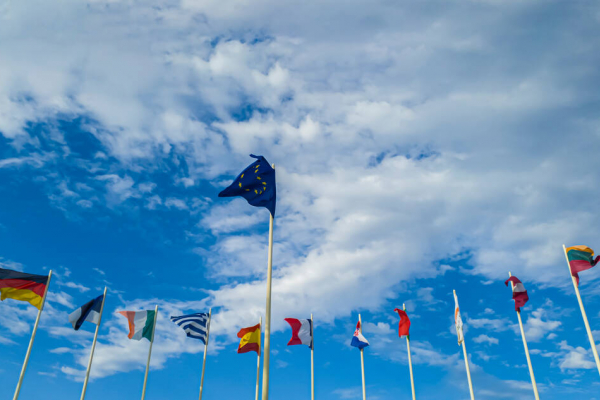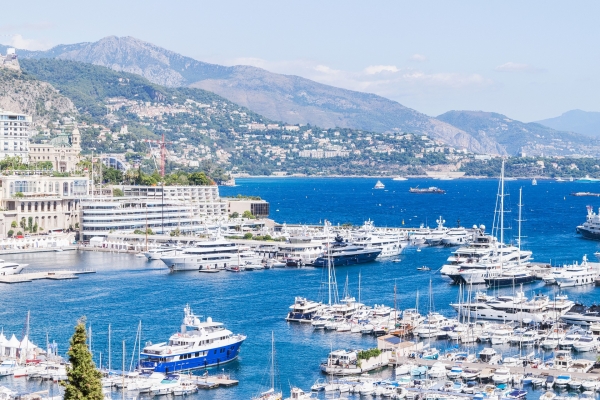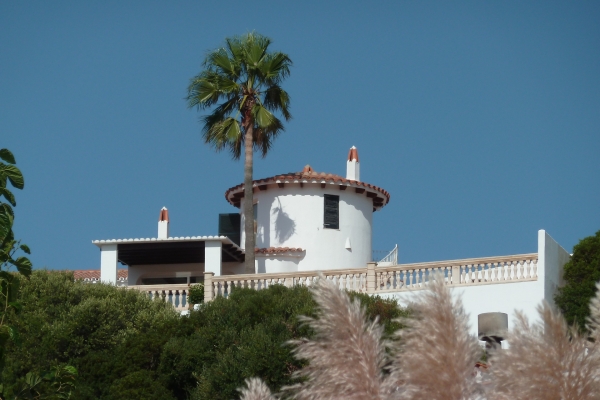Germany
The advantages of purchasing a property in Germany

Climate and geography
The climate is maritime in the north of the country, temperate continental in the south. The average temperature in July ranges from +14 to +22°C, and in January from +4 to -5°C. Mild summers and European cold winters feel quite comfortable.
In the north, Germany is washed by the North and Baltic Seas, and the south of the country is known for its alpine mountain landscapes and picturesque lakes.
Germany borders Denmark, Poland, Czech Republic, Austria, Switzerland, France, Luxembourg, Belgium and the Netherlands.
This location in the heart of Europe is convenient for travel and trips.
Economy
Germany is a country with a steadily developing economy. In terms of GDP for 2021, Germany ranks 4th in the world. At the same time, the Germans occupy leading positions in such industries as mechanical engineering, automotive, chemical and electrical industries.
It is in Germany that the largest market players are based - BMW, Volkswagen, Siemens, Daimler, BASF. In addition, Germany is the third country in the world in terms of exports and imports.
High quality of life
In the list of countries according to the human development index, Germany ranks 6th in the world ranking. A high standard of living has a positive effect on the life expectancy of citizens: in 2020, the life expectancy of an average citizen is more than 81 years.
In addition, happy people live in Germany. As of March 2022, Germany is ranked 14th in the list of the happiest countries according to the International Happy Planet Index.
Germany has a highly developed infrastructure. A network of modern communications runs through the whole country - highways and high-speed railways, which are constantly being modernized. Germany is actively developing trains on a magnetic cushion - such trains do not touch the surface of the rails during movement, which allows them to develop very high speeds - approximately like an airplane.
Highways in Germany are a separate issue. More than 229 thousand kilometers of comfortable roads, of which over 11 thousand kilometers are motorways.
In terms of the number of motorways in the world, Germany is second only to the United States.There are 38 operating airports in Germany. The largest airports are in Berlin, Munich, Hamburg, Dusseldorf. Germany's largest airport is Frankfurt am Main Airport, also known as Rhine-Main Airport.
In Europe, this is the first airport in terms of cargo transportation, and the fourth in terms of the number of passengers.
Social security
The developed social system of Germany protects its inhabitants in difficult situations. Unemployment allowance, financial assistance for the upbringing of children, subsidies for rental housing - a resident of Germany can count on this and other support if he is experiencing financial difficulties.
The basic child benefit is called Kindergeld in Germany and ranges from 219 to 250 euros per month. The allowance is paid until the child reaches the age of majority or until the age of 25 (provided that the child receives an education and works no more than 20 hours a week).
Healthcare
Germany is famous for the principle of solidarity in public health insurance. Every resident of Germany is required to have health insurance. As a percentage, the Germans pay the same contributions to the insurance and are entitled to pay for all necessary medical services.
The health insurance fund covers the cost of visits to doctors, as well as partially or fully pays for the cost of medicines and medical procedures.
Free higher education
Higher education in Germany is practically free, including for foreigners. It is necessary to pay only small semester fees (about 150 euros). In total, there are 376 universities in Germany. Germany is not only strong with a high level of training in technical universities, but is generally famous for the quality of higher education.
Thus, ten German universities are in the top 100 best universities in the world according to the Times Higher Education ranking.
The best universities in Germany:
- University. Ludwig Maximilian (32)
- Technical University of Munich (44)
- University. Ruprecht Karl in Heidelberg (47)
- Humboldt University Berlin (67)
- RWTH Aachen (87)
- University. Eberhard Karl in Tübingen (89)
- Charité Medical University Berlin (90)
Environmental friendliness
The Germans try to lead an eco-friendly lifestyle and care about the environment. Garbage is sorted here, and used glass and plastic bottles are recycled. Unnecessary things are not sent to a landfill, but find new owners.
The locals even have a special word for this lifestyle - Nachhaltigkeit, which can be translated as environmental friendliness, durability. More and more people in Germany are seeking to use goods and services that comply with this principle.
For this reason, cycling is a popular mode of transport here, as it is the most environmentally friendly way to travel in the urban environment. A cyclist in Germany is not just a person who decides to ride, but a full-fledged
Traffic steward. There are separate bike lanes for cyclists, and they really don’t like it when pedestrians encroach on their movement area.
Lifestyle
Germany is perfect for a measured family life. Low crime rate, compliance with laws and regulations make life in Germany comfortable and safe. Many mistakenly think that living in Germany is boring.
One can argue with this, since here you can find a lot of leisure activities: from techno clubs and DJ bars in Berlin to the Dresden or Bavarian State Opera.
An interesting event can be found for every taste, the main thing is desire.The Germans are a sports nation.
They are happy to go to the mountains, travel tens of kilometers on a bicycle and go in for a variety of sports. So, if you like physical activity, be sure that in Germany you will find something to do.

Culture and traditions
Germany boasts a rich cultural heritage. Many magnificent palaces and castles attract tourists from all over the world to Germany, and the fabulous Neuschwanstein Castle, located in the south of the country, even served as the prototype for the Sleeping Beauty Castle in Disneyland Paris.
Christmas markets are another magnet for tourists in winter. Garlands are lit on the streets of the cities, the aromas of spicy mulled wine and wonderful German sausages are hovering, pleasant music sounds - all this immerses visitors in the atmosphere of a holiday and gives a feeling of an approaching miracle.
And if you prefer beer to mulled wine, then you should definitely visit Oktoberfest, an annual folklore festival that takes place in Bavaria. This is the largest folk festival in the world. About 6 million visitors from all over the world come to this festival to taste Bavarian beer and traditional German cuisine.
Another popular folk festival is the Cologne Carnival, which is celebrated not only in Cologne, but throughout Germany. And it is impossible not to mention a huge number of music festivals, they take place all over the country and gather groups of various genres: from folk to metal.




